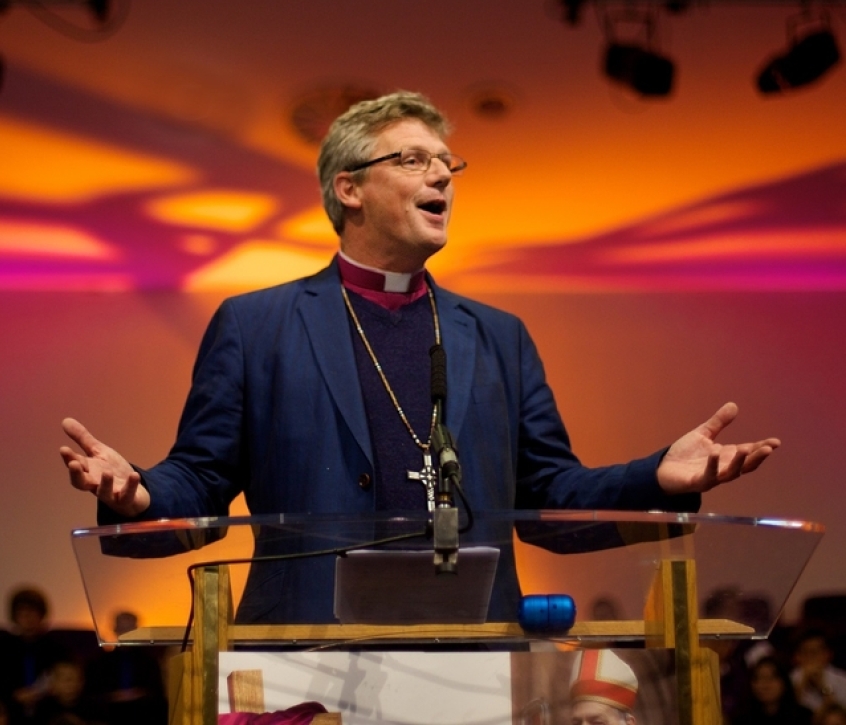LGBT people should be encouraged into church leadership and not face awkward questions about their sexual relationships, clergy are being told.
In a letter praising 'the great contribution that LGBT+ Christians are making', four bishops in Lichfield are urging clergy to take a different approach to welcoming gay people.

'We wish to affirm that LGBT+ people can be called to roles of leadership and service in the local church,' the new guidance issued to Anglican ministers in Lichfield said. 'Nobody should be told that their sexual or gender identity in itself makes them an unsuitable candidate for leadership in the Church.'
It added: 'Intrusive questioning about someone's sexual practices or desires, or their experience of gender, is almost always inappropriate. It is also unacceptable to tell or insinuate to people that sexual orientation or gender identity will be changed by faith, or that homosexuality or gender difference is a sign of immaturity or a lack of faith.'
Gay couples should also not be denied communion or baptism on the grounds of their relationship, the letter says, adding that the possibility of excommunication is only for bishops to decide.
'We want to make clear that nobody should be excluded or discouraged from receiving the Sacraments of Baptism or the Lord's Supper on the grounds of their sexual orientation or gender identity. Note that in all cases excommunication is reserved to the diocesan bishop,' it says.
The letter indicates a shift in tone from the Church of England although it does not indicate any formal change in its teaching that marriage is between one man and one woman and blessings for gay couples are prohibited.
Bishops are working on a substantial new teaching document led by the bishop of Coventry, Christopher Cocksworth, which will be formalise the Church's stance on sexuality.
The letter issued last week is signed by the bishop of Lichfield, Michael Ipgrave, the bishop of Shrewsbury, Mark Rylands, the bishop of Stafford, Geoff Annas, and the bishop of Wolverhampton, Clive Gregory.
It insists it does not change the Church's teaching but rather offers a different tone.
'Those of us with preaching, teaching and pastoral responsibility need continually to be aware of the personal and sensitive nature of these issues. When speaking publicly we are likely to be talking to some who might disagree from a place of deeply held conviction central to their Christian identity,' it says.
'It is not right to conceal our ethical and theological views, but we all need to tread gently when we express them and be ready to listen sensitively to those for whom our words might be difficult,' it adds.
'We need to be highly attentive to people when they approach us asking for counsel and prayers on these deepest aspects of their life. We must be alert to the power relations involved in such prayers and conversations, and the possibility of spiritual or emotional abuse.'
The letter was welcomed by Tracey Byrne, chief executive of the pro-LGBT campaign group, One Body One Faith, who said: 'Much of what the bishops say, shouldn't really need saying, but sadly it does.
'Only this week we heard from a gay couple in another part of the country whose vicar has told them they can't serve on any church committee, and we know too of couples whose vicar has refused to baptise their children. The kind of intrusive and abusive questioning of individuals condemned in the letter really does happen. People feel ashamed, hurt and confused when they encounter this kind of behaviour from people in positions of power and authority. It's an affront to the gospel, and deeply damaging of individuals.'













